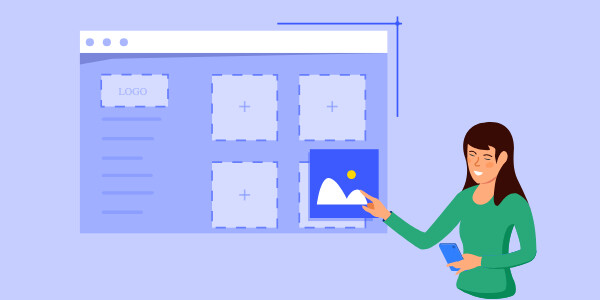
Blazing Internet Speed, Slow Page Loads: What’s the Real Issue?
You’re browsing the web, and you’re sure that your internet connection is blazing fast, but the web page loading is still painfully slow. It is frustrating, especially if you pay for high-speed internet. But if web pages are dragging their feet, your connection might not be the problem. It’s time to dig deeper and see the reasons for “Fast Internet Speed BUT Slow Page Loading.”
Why is My Internet Speed Fast, but Pages Load Slowly?
Alright, it is time to find the causes of this frustrating problem in web design in Phoenix. Here are different reasons why your internet speed test is fast but pages load slowly:
1.Large File Sizes
Web pages with large files are slow to load. High-resolution images, long videos, and heavy scripts, stylesheets, and animations can balloon in size, making load times drag even on the fast internet. For example, a 2MB image can take up to 5 seconds to load on a 3G network.
2.Slow Server Response
Time to First Byte (TTFB) indicates how long it takes for the server to respond to your browser’s request. Even with a fast internet connection, a slow server response causes delays. Slow servers can result from heavy traffic, outdated server technology, or poor hosting plans. Ideally, TTFB should be under 200 milliseconds. Anything longer, and users start noticing lag.
3.Poorly Written Code
Unoptimized code can add seconds to loading time. Extra spaces, comments, and unused code weigh down websites. Minifying JavaScript and CSS files speeds things up by stripping away unnecessary code. Minifying can actually reduce file sizes by up to 50% which results in improving the overall user experience.
4.Third-Party Ads and Scripts
External scripts like ads or social media buttons can slow you down, too. For example, ads can add over 5 seconds to a page’s load time. Another example is third-party tools and even analytics tools, like Google Analytics or Facebook Pixel. If they aren’t optimized, they can cause delays.
5.Cache Problems
Do you know what slows down even the fastest internet speeds? Reloading everything from scratch. It happens when a browser doesn’t store site data correctly. Caching errors mean your browser has to fetch the same information repeatedly. In addition, websites that don’t use caching make users download the same elements over and over, unnecessarily.
6.Slow DNS Resolution
Think of DNS as the internet’s phonebook. It works by translating website names into IP addresses. If your DNS servers take too long to respond, you’ll experience multiple delays. Switching to faster DNS providers like Cloudflare or Google DNS cuts down the time it takes to find a website.
7.Too Many HTTP Requests
There is an HTTP request for each image, script, or style sheet. So, when you have too many elements on a page, it slows down the process. The more requests a browser makes, the slower the website will load.
8.Network Traffic
Heavy traffic on your network can clog up your connection. This can happen even if your internet speed is fast. You may notice slower loading times during peak usage hours, like evenings when everyone is streaming content.
Latency is the time it takes for data parcels to travel from your device to the server and then come back. It can also play a role. High latency adds noticeable delays, especially for online gaming or video streaming that needs real-time data.
9.Browser Extensions
Too many browser extensions can also drag down the page load speed. Some extensions, particularly ad blockers or security plugins, interact with every webpage you visit and slow down the entire browsing experience.
How to Fix Slow Website Loading?
Let’s get to the good part—how to make your internet truly fast for loading web pages. Here, we have answers for each reason we mentioned above:
- Reduce image sizes without sacrificing quality by using tools like TinyPNG or ImageOptim in SEO services in Phoenix. Also, minify CSS and JavaScript files using tools like Minify or UglifyJS.
- Host your website on a reliable, fast server. You can also upgrade to a dedicated server. You could use a CDN, like Cloudflare or Fastly, that stores copies of your site on servers around the world.
- Audit your website’s code, remove anything unnecessary, minify all JavaScript and CSS, and consider deferring or asynchronously loading non-critical scripts. Use tools like PageSpeed Insights or GTmetrix to identify areas of improvement.
- Remove third-party widgets, like ad services or social media buttons that might be unnecessary. Instead of multiple tracking scripts, combine them into one.
- Ensure that your website’s caching is set up correctly. If you cache static resources, your browser doesn’t need to download them again and again.
- Switch to a faster DNS provider, such as Google DNS or Cloudflare DNS, to speed up the process of finding website addresses.
- Combine CSS files, minify scripts, and reduce the number of elements on a page to minimize HTTP requests.
- Avoid browsing during peak traffic times when possible. You can try testing your internet speed at different times of the day to find out the best times.
The Bottom Line
Having a fast internet connection doesn’t always guarantee that web pages will load quickly. Unoptimized code, large files, bad server response, and external scripts slow down even fast Internet speeds. By following the steps above, you can ensure a faster, smoother browsing experience.

